Gradual exit of ‘old political moguls’ from the political stage
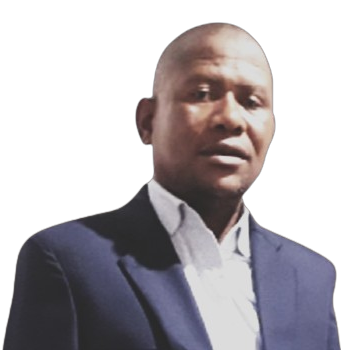
Mr Mzimkhulu Sithetho
Managing Director of the Governance Institute for Sustainable Development and Editor-In-Chief of thizkingdom.com
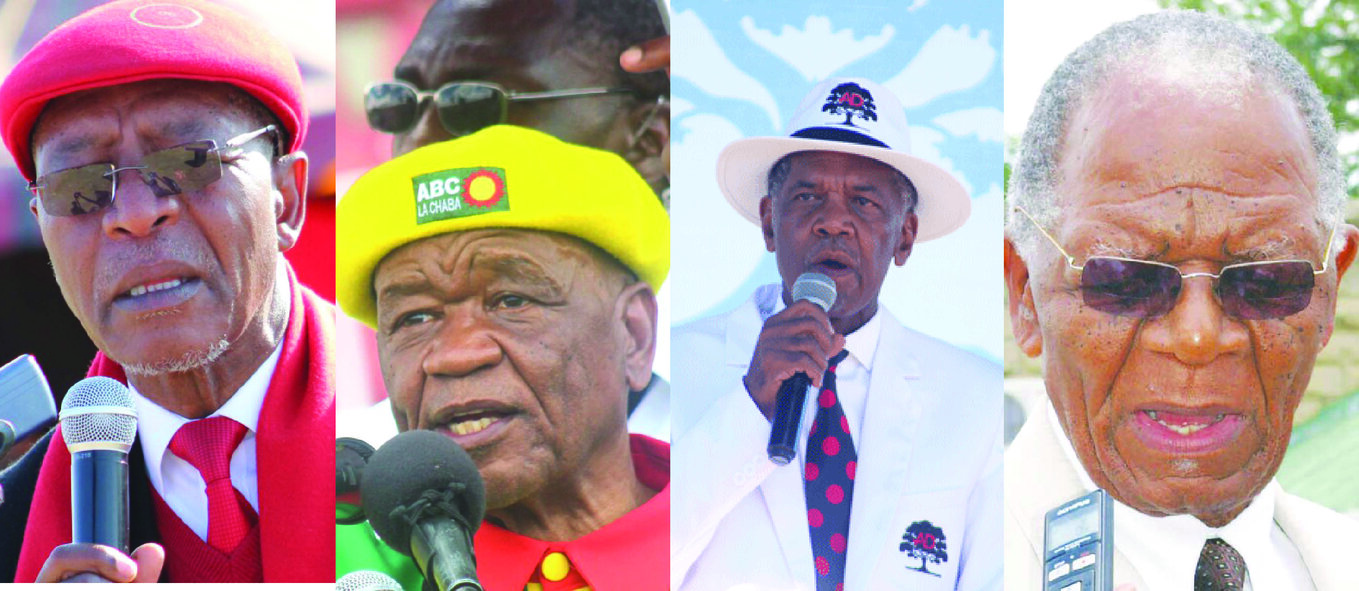
What have they left behind in the political stage?
Who are they leaving behind?
Where are they venturing into?
What should the up-and-coming political generations learn from them?
Introduction
Politics is loosely defined as a series of activities which associated with the governance of a country or an area. Politics has to do with debates and dialogue on amassing power, distributing the power for the betterment of people’s lives.
Politics is about exerting authority by politicians, who are players in the political space influencing their followers to rally behind their chosen causes of action.
Politics revolves around political leaders and political formations influencing others, including their followers on the need to be on their side as they seek to amass power so that they will be able to control access to national resources.
When they have succeeded to convince others and are given this power, they design and sell the proposed policies they want to implement in government.
For those outside government, their politics will be to convince their followers and others that they have better alternative policies, which if elected they can implement to bring about better life to the people.
When obtained, through a pluralist or majoritarian political system, is exercised through government.
If still being pursued by those who are in opposition, political power is exercised through prowess of political leaders to tilt the levers of power in a certain direction (qualitative value of political power) to win the confidence of voters to buy into their political story.
So, for a politician to succeed in politics, depends on the political story that is being told to the voters. It is therefore advisable to leave the political stage when one is still capable or still has the energy to sell a convincing political story to the voters.
However, time is also of essence in that even if the political story being told is relevant, the teller of the story might have become obsolete or unappealing to tell the story.
The value of the communicator of the political story, the channel of communication and also the mood of the recipient of the story at any given time are more crucial than the political message/story itself.
This bring the argument of exiting the political stage in time while one is still appealing to the recipients, has energy to tell the story and while the channels for telling the story are still relevant.
Age as a factor
Age goes with diminishing energy and capability to perform one’s responsibilities to the satisfaction of those being served. At every stage of one’s life, including political life, age is a determinant of the level of one’s vigour to be effective in execution of their roles.
An inverse argument to that of age is experience. Viewed from the angle of ability of a performer to executive duties while still energetic, able-minded, flexible and innovative as well as creative, age becomes an important factor.
The mentioned factors denote that the younger a performer is, the greater are the chances of being effective, this also ringing true for politicians.
A direct opposite to the approach to effective performance is the consideration of experience, which places a high premium not on age, but on the package of skills, knowledge and expertise gained overtime as a result of being there, experimenting, making mistakes and with passage of time, learning how to respond to various situations.
Experience beats age when it has to do with the quality of thinking, ability to respond to situations relying on what has happened before (experience) and using this as a reference point to address the current situation. In this way, age falls off as a determining factor.
In active politics, consideration of experience over age carries the day when politicians start their political life within political parties, which act as real seedbeds for germinating political leaders.
It is when political parties, which have robust sub-structures such as women and youth leagues and other sub-establishments. These organisational sub-structures - women, youth and veteran leagues craft effective programmes such as political education programmes for political germination of young politicians. They develop plans and strategies for ensuring that members grow internally until they become effective political leaders. This must be a conscious and deliberate undertaking within political parties.
As they get politically nurtured within their parties, the young politicians ready themselves to take over or succeed their elders through well-crafted succession plans.
Those who are leading at any given time, amass the necessary experience, which they use to groom the young ones, who, in turn, are willing to follow through and get the political education imparted on them.
As they do so, these old ones become better in their political life. By the time they reach a certain stage in their lives, with age now coming to the equation, they will gradually unleash the experience they have gathered over time for the benefit of the growing young Turks. Then, the old guards will pass on the baton at the right time.
The cases of the Lesotho Congress for Democracy (LCD), All Basotho Convention (ABC), Basotho National party (BNP) and the Marematlou Freedom Party (MFP) as well as the Democratic Congress (DC) are critical for this discussion.
Selection of these parties is deliberate, given the time they have had in the political life of Lesotho. For the LCD, which is now 25 years old, the gradual diminution of the party in terms of political relevance has been of its own making.
LCD grew in leaps and bounds following its formation in 1997. It won three successive elections (1998, 2002 and 2006 respectively) comfortably, but its hold on grip started to dwindle since the 2007 election. This followed a split that saw the formation of the ABC in 2006.
The power struggle within the LCD that started after the 1998 elections killed the party until it is what it is today, a political minnow that is able to win only the leader’s constituency of Mahobong and get a few proportional representation (PR ) seats.
Had the leader then, Pakalitha Mosisili left the stage before the 2007 elections, after having made his exit publicly known, LCD would have gone to the 2007 elections, as a united front.
If, after winning the 2002 elections, Mosisili made his intensions to step down known to his inner circle, it would have given the LCD enough time to think about a successor in time. There would have been time to groom him while Mosisili is leading government, and the new leader would be focused on making his inroads into the party structures. He would have comfortably passed on the baton after the 2007 elections, leaving no qualms behind.
After all, Mosisili became 60 in 2005, which would have paved his way for taking his early and well-designed political retirement while he was still useful in the politics of Lesotho. But he waited until he was pushed after the 2012 elections, and this was at a time there was a lot of jostling for power in the party. He then left the party at an unhealthy state after a fatal split from the party to the DC. This was after a long-drawn power wrangling within the party, for which he was partly responsible as having taken by belonging to another faction. That split was a death knell on the party.
The ABC was formed in 2006 by Thomas Thabane, who was 67 years then. Already, he was old and his energy was waning away. He would have planned to step down immediately after he became prime minister after the 2012 elections. Given that the ABC had not won the 2007 elections, which followed its formation, his ambition was to taste state house.
It is an undeniable fact that Thabane came late in the game to be in the steering of a political party, though his role in Lesotho’s politics dates back more than four decades.
Though he played a pivotal role in the formation of the LCD, he was deprived opportunity to lead the party by Mosisilit’s close allies, an inner circle from which he got whisked away.
Thabane became an inner circle of Mosisili after the 1998 elections, after he was handed over to Mosisili by Ntsu Mokhehle.
He had served competently as a political advisor of Mokhehle following the triumph of the Basutoland Congress Party (BCP) in the 1993 elections. Thabane maneuverer to find his way into the Mosisili-led government since 1998.
Thabane tried all he could to make inroads into the top echelons of his brainchild, the LCD, but without success.
Mosisili’s inner circle, which was made of Monyane Moleleki, Mpho Malie, Mofelehetsi Moerane and Sephiri Motanyane ensured that it elbowed Thabane out of the LCD.
Thabane was the second victim of this politburo of Mosisili after it had emasculated Kelebone Maope, a close confidante and protégé of Mokhehle, who was seen as a threat to this inner circle.
Maope did not tolerate the heat created by this inner circle and he left early in 2001 to form the Lesotho People’s Congress, which became a failed political project.
Seeing he was left in the cold, Thabane jumped the ship to form the ABC after eight years of angling with his political arch-rivals in the LCD.
But age was already against him when he formed the ABC as he was in his late sixties, given that he was keen to lead government using the ABC as a bandwagon and conduit to state house.
However, he missed the target in the first attempt at winning the election and becoming prime minister in the 2007 election.
Thabane had no alternative, but to retreat to the opposition bench for yet anotherfive years, but he clock was ticking fast, warning him that his time was up.
In the next election of 2012, had had a chance, and it was ‘compulsory’ that he wins the election to go to state house, as he was already over 70.
Inner frustration was growing and he had to rely on one factor to see this happen, to facilitate a split in the LCD, so that the ABC could gain.
The split in the LCD, as envisaged, which gave birth to the Democratic Congress (DC), worked in his favour as it split the vote between the party and its splinter group.
Therefore, the ABC, which had growth from 2006 gained benefit, of course alongside its coalition partners, of which the LCD was a part.
This put Thabane ahead and he occupied state house, which he had itched to occupy for many years. But soon after he was prime minister, he was already not energetic as he used to be.
Circumstances also did not work in his favour as his first term was cut short by a snap election in 2015 after a breakdown of relations in the coalition government of 2015 among the three coalition partners.
In the 2015 election, Thabane and his allies failed to muster enough voters to cobble a ruling coalition and they bit the dust and fled to seek political solace in South Africa.
When Thabane returned from self-imposed exile in 2017, he was nearing 80, only short of two years.
If Thabane declared that he had had a taste of state house in 2012 and relinquished power in 2014 for someone who would succeed him in the 2017 election, he would have had enough time to groom him to contest the 2015 general elections and take over in the successful election of 2017.
He would have avoided the black spots that he is taking with him as package when he retreats to his political and office retirement.
Moleleki is another shrewd politician who waited too long for Mosisili to handover the baton to him; this after he successfully elbowed out Kelebone Maope in 2001, Thabane in 2006, and Mpho Malie in 2012.
He was now left with Mosisili, from whom he would comfortably take over the reins, of course from a different political outfit, the DC.
Moleleki worked hard to build a political project called the DC, which he ensured that it broke away from LCD. This was after he realised that the young and up-coming political firebrand, Mothetjoa Metsing was making serious inroads in the LCD, this to his disadvantage.
The clock was also ticking against him as he was getting older. DC was his only chance to taste state house. By waiting for all his allies who were looking forward to taking over from Mosisili to go, Moleleki risked two things.
First, he risked waiting too long to be handed over the baton, and what if it was not him that Mosisili had in mind?
Two, he would lose a crucial moment for him to start off his own political outfit while he was still wiser, energetic and more politically shrewd.
The clock was ticking and the political context was changing fast, given the nature of politics of Lesotho, which is driven by coalition arrangements.
The context as a factor
The political life of any country takes place within a certain context. The context is created by the cultural life of a country, which largely influences its political life. To some extent, it transforms the political life of a country into its political culture.
The culture of a country is made of the norms, values, beliefs, practices and mores of a society. These govern the manner a society conducts itself and is reflected in the daily lives of the people in that society.
So, mostly, the political life of a society cannot be easily divorced from its cultural life. In fact, the former translates into the latter as it is largely influenced by it.
Therefore, leaders who are performing on the political stage at any given time, are largely influenced by the cultural life of the society at a given time.
Put more succinctly, political leaders of any society are largely influenced by the political culture that obtains in that country at that particular time as culture itself, is not a static phenomenon.
Culture is naturally dynamic and evolves overtime, so it depends on where a politicians would be when the political culture of his country would have evolved.
As a result of a culture’s dynamic nature, a politician may be out of space, like fish outside water, as time goes by, the political landscape gradually changes, given the political culture at that time.
The risk of taking too long in politics is that one risks being overtaken by political events, the mood and the changing culture, which he or she might not be aware of. This is even more pronounced in Lesotho’s politics, which largely lack political governance, which to a large extent, do not have a clear direction.
As society evolves, including politically, it sheds away old, and at the same time, adopts new cultural attitudes, behaviours and practices in equal measure.
Political leaders who overstay their welcome in the political life of their country risk becoming politically obsolete and irrelevant.
There comes a time when they cannot move in tandem with the political needs of those they are leading.
The now retired political leaders - Mosisili, Thabane, Lesao Lehohla and Vincent Malebo are no longer politically relevant.
Moleleki is still hanging on, and he will become the only remaining member of the political class of 1993, which is still in active politics after the 2022 general elections.
His political contemporaries of 1993 have grown, matured and experienced various episodes, undergone rigours and sometimes rough patches.
They were energetic and relevant to the politics of the time, and they had to exit the stage before they engaged in some corrupt political skirmishes.
The gravity of these skirmishes may taint the political history built over the years. Had they left the stage early, they would have groomed their successors and built they would have marshalled their political legacy.
It would have been great for Mosisili to have left the stage before the 2007 elections. He would have had a legacy that he would bequeath to the young politicians.
Moleleki on the on other hand, risked waiting too long until he was not politically relevant, or at a time when the political vehicle to state house the DC, had politically depleted.
Two, he risked falling away with Mosisili as it had become tradition to do so and when he did, the only option was to form his own thing. Indeed, the last option or risk became his undoing.
He ended falling way with Mosisili to the extent of jumping the ship to form the Alliance of Democrats (AD).
Even if he had convinced his sub-conscience that he was not fit to form a party on his own, and lead it to victory without the support of Mosisili, this time around, it faced him and he had to make a choice.
Indeed, he made a choice - to ditch the project (DC) and form one’s own party, AD, which unfortunately failed to translate into a viable political vehicle to take drive him to state house.
The AD only drove Moleleki half-way to State house as he only managed to become a Deputy Prime Minister, that was never a Prime Minister.
It is prudent that politicians are aware of the factors that influence their successful stay on the political stage and plan to exit in time while they are still energetic and relevant.
Most Read
Reforms, Elections and Democratic Stability in Lesotho
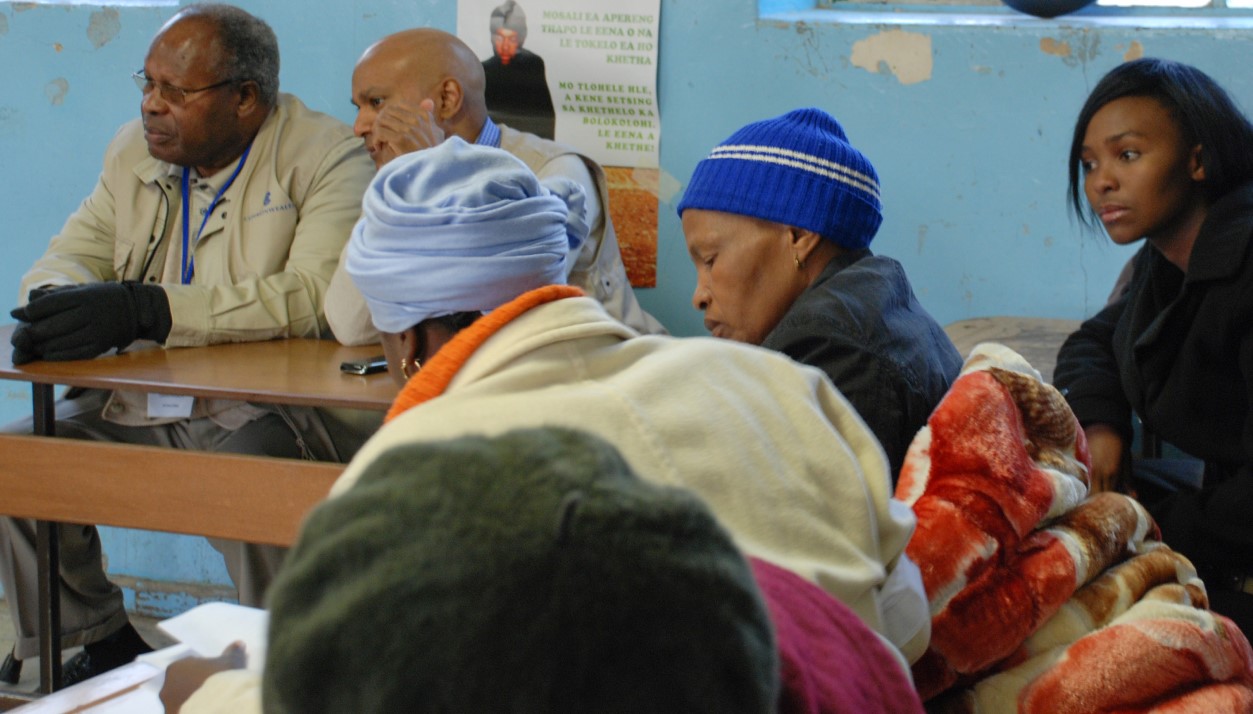
Organizations and companies go through a rough patch
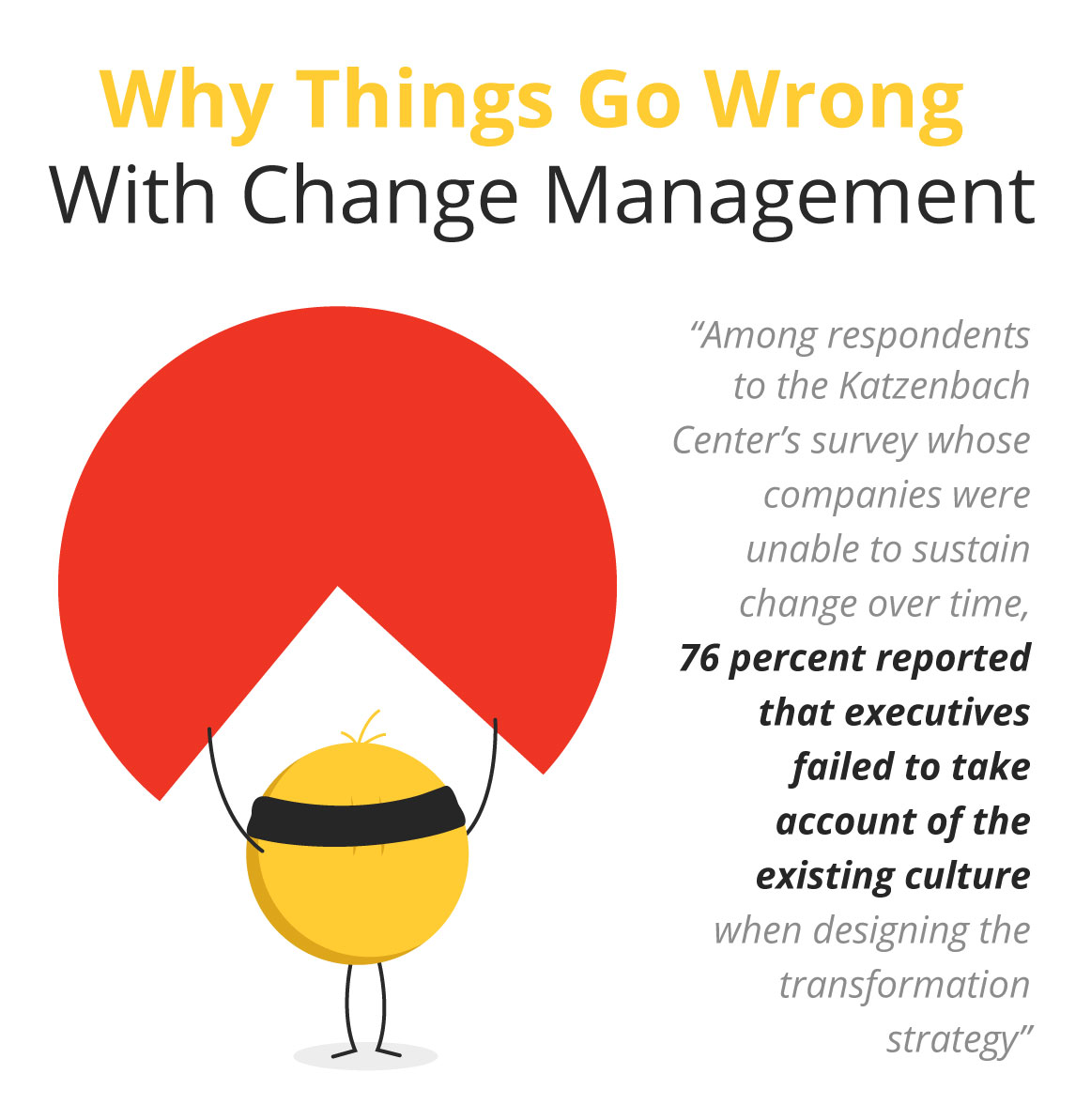
The cooling of the political temperatures came with the BAP joining the bandwagon after a season of political agitation and chess games, reflecting political anomalies in the system of political governance of Lesotho:

Related Stories
A bipartisan arrangement is ideal for the reforms:

The Lusaka Declaration 2023 at a glance:
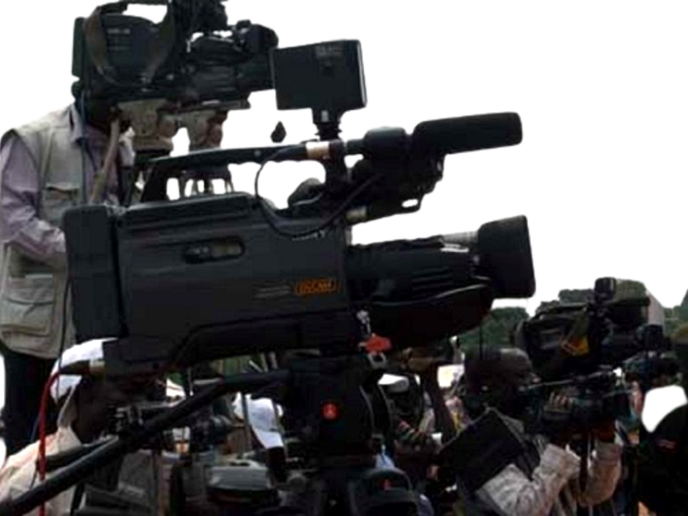
The opportunistic character of Lesotho’s politics foils a no-confidence vote:
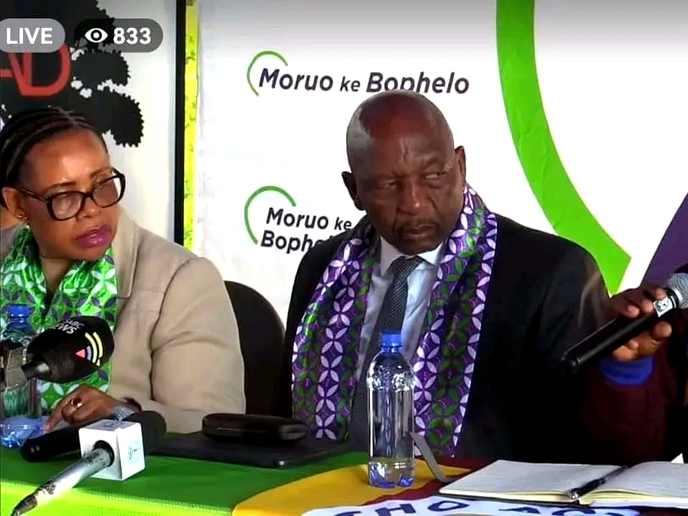
Opinion Vote Polls
Do you think the existing government is going in the right direction to benefit the people of the country?
Subscribe for your daily newsletters
Enter your email to subscribe to our newsletter.

